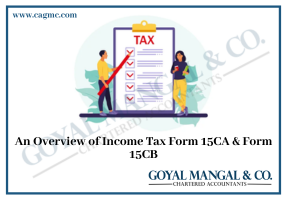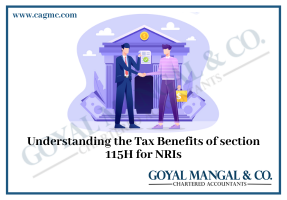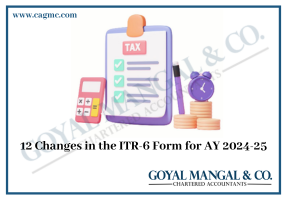
We’ve all heard about India’s accomplishment at the 2020 Tokyo Olympic Games. Whether that was Neeraj Chopra’s gold or Mirabai Chanu’s silver or our women’s hockey team’s medal from afar, they have all made the nation pleased. Indeed, their triumphs have fuelled the desire of the players of our future generation to pursue sports as a vocation. This contributes to the development of an athletic ethos in society.
To honour their incredible hard work and difficulties, these medallists and other competitors received medals and trophies for their remarkable conquests and impressive feats as a gesture of honour, acknowledgement, and motivation. The federal and state governments, as well as business organisations and global brands, have announced generous awards that have piqued the public’s interest and elevated these medallists and other Olympians to the status of national heroes.
However, the announcements of these awards have piqued the public’s curiosity and interest in learning more about the tax responsibility that sportspeople face in relation to the accolades they get, both in cash and in-kind, under the Income-tax Act of 1961.
To answer the question of whether cash and other awards offered to the medal and non-medal winners in our country are taxable, it could be divided into two categories:
- Olympic medallists
- Non-medal winners in Olympic and other competitions/ tournaments
| Table of Contents: |
For Olympic Medalists
The Income-tax Act expressly excludes from taxation the incentives awarded by the Central Government and State Governments to medal winners at the Olympics, Asian Games, and Commonwealth Games under Section 10(17A) of the Act. So, the Central Government and different State Governments such as Haryana, Rajasthan, and so on, announcing cash rewards worth crores of rupees to medal winners such as Mirabai Chanu, Neeraj Chopra, and so on, fall within the exemption clause of the Income-tax Act and are fully exempt from income tax. As a result, the full monetary prize, including rewards in kind, is not subject to the tax of these athletes.
For Participants
The benefit of tax exemption is limited to gifts given by the Government of India and State legislature to the medalists only. Therefore, the gifts and grants granted by private institutions, local authorities and commercial brands are liable to tax. Hence, such is the case of Indian Women Hockey where despite losing their performance is applauded by granting various rewards. Hence, such rewards are taxable under Income Tax Act.
The Tax Implications of Awards
When it comes to rewards, if they are approved by the Government of India, they are tax-free. The taxability of rewards is determined by the purpose for the award, who gives the award, and whether the award was approved by the Central or State Government. If the award is made in the public interest and authorised by the government, it is exempt from taxation under Section 10 (17A) of the Income Tax Act. The Government of India maintains a list of prizes that are tax-free in the recipient’s hands. Among these honours are the following:
- National Awards
- Nobel Prize if it is notified by the Government under Section 10 (17A) of the Income Tax Act
- Awards are given by the Government to winners of Olympics, Asian Games, Commonwealth Games
- Arjuna Award
- Bharat Ratna Award
If, on the other hand, the award is not recognised by the Central or State Governments, or is made by an unauthorized organization, it becomes chargeable to the tax of the awardee under Section 56(2) of the Income Tax Act. The money earned as a result of the award would be reported as ‘income from other sources,’ and it would be taxed.
The following are some common instances of taxable awards:
- Wisden Cricketer Award
- ICC Cricket Awards
- Filmfare Awards
- Grammy Awards, etc.
Is an Award an Income?
First and foremost, what exactly is an income? An income is a monetary reward for doing or refraining from doing something. And what exactly is an award?
An award is often a one-time donation made completely out of the generosity of the person making it. This is not an agreed-upon quantity of money in exchange for doing or not doing something (unlike gambling & game shows, etc). As a result, a reward is a ‘Capital Receipt‘ rather than an income.
The taxation requirements of India do not apply to capital receipts. As a result, it is neither taxable nor tax-free. In essence, a prize is not a source of revenue.
Tax Liability of Indian sportsperson of Tokyo Olympics
Only the rewards presented to the victors by the Central or State governments, as well as other government-approved agencies, appear to just be tax-free. However, not the others.
For example, Neeraj Chopra would have to pay 30% tax on the SUV supplied to him by Anand Mahindra, unless Mr Mahindra further regards him by bearing such tax liability. Also, even if granted by the government, the awards awarded to the women’s hockey team are taxable (since they were not winners).
Final Words
India has much more possibilities than the entire world realises! It’s just that we don’t always have the correct type of motivation (which isn’t necessarily due to a lack of resources). We must provide the impetus that Indian sports so require. And this might result from acknowledging efforts rather than simply winners.
Rewards granted to all Olympic Games players, regardless of medal-winning status, should be tax-free under the Income-tax Act so that our worthy athletic heroes, such as women hockey team members who lost out on a medal, may continue inspired. If the government wants to encourage sports as a source of income, it may issue a special tax-exempt status letter in favour of our sporting stars.







